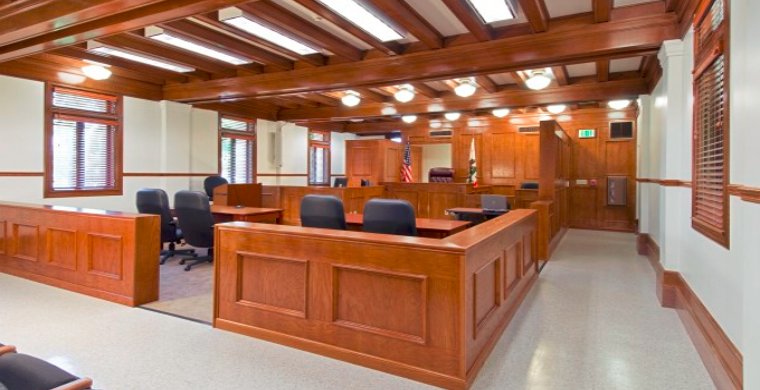Illinois Court Smacks down Episcopal Church over Funds
By David W. Virtue DD
www.virtueonline.org
February 23, 2015
The Eighth Judicial Circuit of Illinois smacked down the Episcopal Church this week over moneys held by The Episcopal Church in its ongoing war over properties.
"This opinion makes clear that, after The Episcopal Church lost the case, it acted in 'bad faith' by attempting 'to circumvent the Order' finding that TEC had lost the case. Therefore the Court decided that TEC must be punished for its bad faith. The punishment (or 'sanctions') is that TEC must pay the attorney's fees of the winning parties," Philadelphia trial attorney John H. Lewis said upon reading the 8-page judgment.
On Friday, the trial court judge in the Quincy case issued a strongly worded order to TEC and its attorneys that began with these words: "Although we thought the following conclusion was clear from our [earlier] determination, we will make it unambiguously clear now: plaintiffs won."
It seems that TEC's attorneys, ever since they lost the case on appeal (and the Illinois Supreme Court rejecting their petition for review), have been trying to prevent the plaintiff Anglican Diocese and its Bishop Alberto Morales from enjoying access once again to the bank funds which TEC's attorneys caused to be frozen (by writing a threatening letter to PNC bank which held the funds) some six years ago. They sent a new letter to the same bank on December 30, claiming that nearly $800,000 of the funds on deposit actually belonged to one of the Quincy parishes, and not to the Diocese itself. They pointed out that there is still a lawsuit pending against that parish (and 14 others) in Peoria, according to noted canon lawyer A.S. Haley.
The bank dutifully froze the funds again; the Diocese's attorneys went to the trial court for relief. Yesterday, that court granted their motions--and awarded them sanctions against TEC.
Here are some excerpts from the Order:
This controversy has always been about a single account ... which contained a variety of funds held at PNC Bank. This is how the case was tried at the trial level, this is how the case was presented at the appellate level and this was the posture of the case as presented for the Petition for Leave to Appeal to the Illinois Supreme Court.
Only after losing at the trial and appellate level, and then being turned down by the Supreme Court of Illinois, does TEC now claim that a lesser amount should be carved out of this single account. Moreover, TEC brings an action in Peoria County claiming the same thing and goes further to argue that this court has no "jurisdiction" to decide this issue.
... It appears to this court that this is an "after the fact" attempt to recover some of the funds. They took an "all or nothing" approach at trial and on appeal.
The order of October 9, 2013 expressly denied all of TEC's claims, awarded the entire account to the Plaintiffs and specifically denied any of TEC's claims for an "accounting".
TEC filed no motion to reconsider, no motion to correct the judgment, no motion of any type whatsoever to support the contention it now makes in their Response. It now claims that a portion of the single account was, " ... never the subject matter of this case nor adjudicated in this court's October 9, 2013, Final Order and Judgment. .. "
After analyzing the record to find that TEC had waived any right to claim that there were separate funds in the single account, the Court observed:
During the argument on these issues, TEC argued that it did not freeze the account, PNC did. To say this argument lacks merit would be charitable. While TEC, in a very literal sense, is correct on "who" froze the account, the "why" is the more important issue. PNC froze the account because it received a letter from counsel for TEC which threatened to hold PNC liable if funds were disbursed.
The court finds, based upon this record, that the continued threat made to PNC Bank to hold it accountable if funds were disbursed and the continued attempt to collaterally attack the clear order of this court dated October 9, 2013 even after this case had run its course through the appellate process constitutes bad faith, is not grounded in fact or existing law and has resulted in needless, ongoing and expensive litigation.
Accordingly, the court grants the request of the Plaintiffs for fees incurred from December 30, 2014 onward pursuant to Supreme Court Rule 137.
There is much more to savor in the Court's order. It is gratifying to have a trial judge (not the one who rendered the original Quincy decision) see so clearly through TEC's bullying tactics, and to deal with them accordingly, noted Haley.
END














